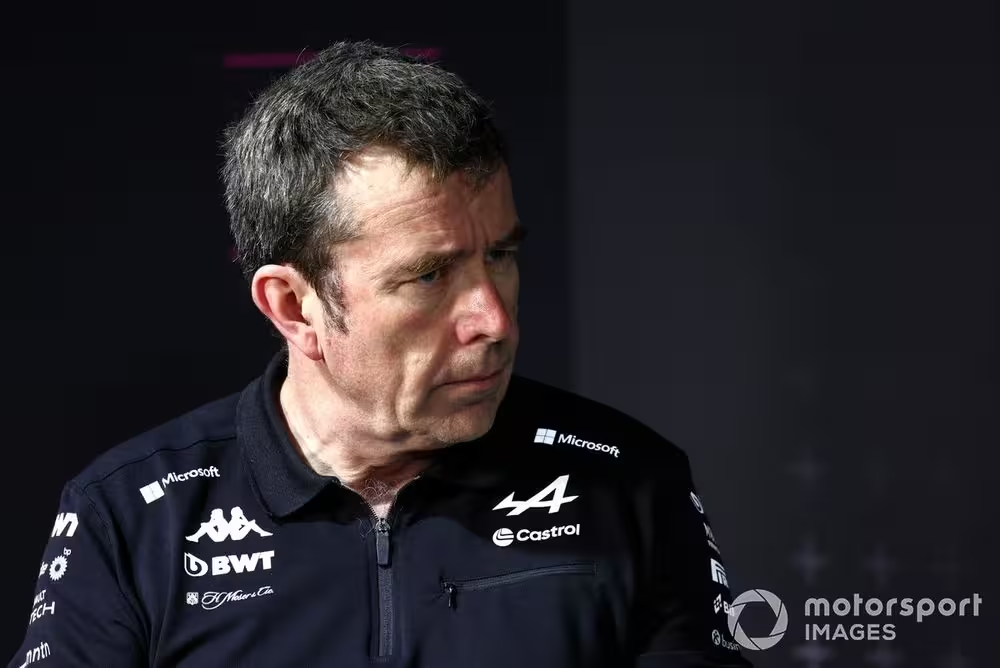Despite no official confirmation about the end of Renault’s engine efforts in Formula 1, it has been clear for several weeks where things are heading.
Talks taking place behind the scenes with rival manufacturers about potential customer deals, and a preliminary agreement with Mercedes believed to now be in place, told their own story about Alpine F1’s shift from a manufacturer to customer team status.
Things moved forward this week though when, as revealed by Autosport, staff at Renault’s factories at Viry-Chatillon and Enstone were informed of an evaluation study to plot a new future for its engine division.
The idea is to move it away from involvement in F1 and look at ways it can help future-proof the Renault organisation – potentially through new technologies like hydrogen.
Ahead of the Belgian Grand Prix, Alpine’s outgoing team principal Bruno Famin opened up about where things were at, and the factors that were at play to prompt Renault to abandon an F1 engine legacy that dates back to the late 1970s.
Famin confirmed the presentation to staff at Viry of the evaluation study, which he feels will better suit Alpine’s future road car expansion.
“The project which has been presented at the beginning of the week to the staff representative in Viry-Chatillon is to reallocate the resources from one side to another,” he said.
Bruno Famin, Team Principal, Alpine F1 Team
Photo by: Motorsport Images
“One side is being the development of the Formula 1 power unit, which is being made in Viry, and to dedicate those resources and skills to developing new technologies for the brand, for the new product of the brand.
“One of the consequences of this project, if it’s accepted, would be then for the Alpine F1 team to buy a power unit instead of developing its own power unit. And then we’ll have more resources to develop the brand and a different power unit to race.”
The motivation for change
Renault’s decision to end its F1 engine project marks a big change in direction, and one that is ultimately fuelled by both competitive and financial factors.
It is hugely expensive to run an engine programme in F1, and those cost can be extreme if, as Renault has found, the end product actually puts you slightly on the back foot.
While some have suggested that the decision to become a customer team was prompted because Renault’s 2026 engine progress was far behind where it needed to be, Famin insists that is not the…
Click Here to Read the Full Original Article at Autosport.com – Formula 1 – Stories…

